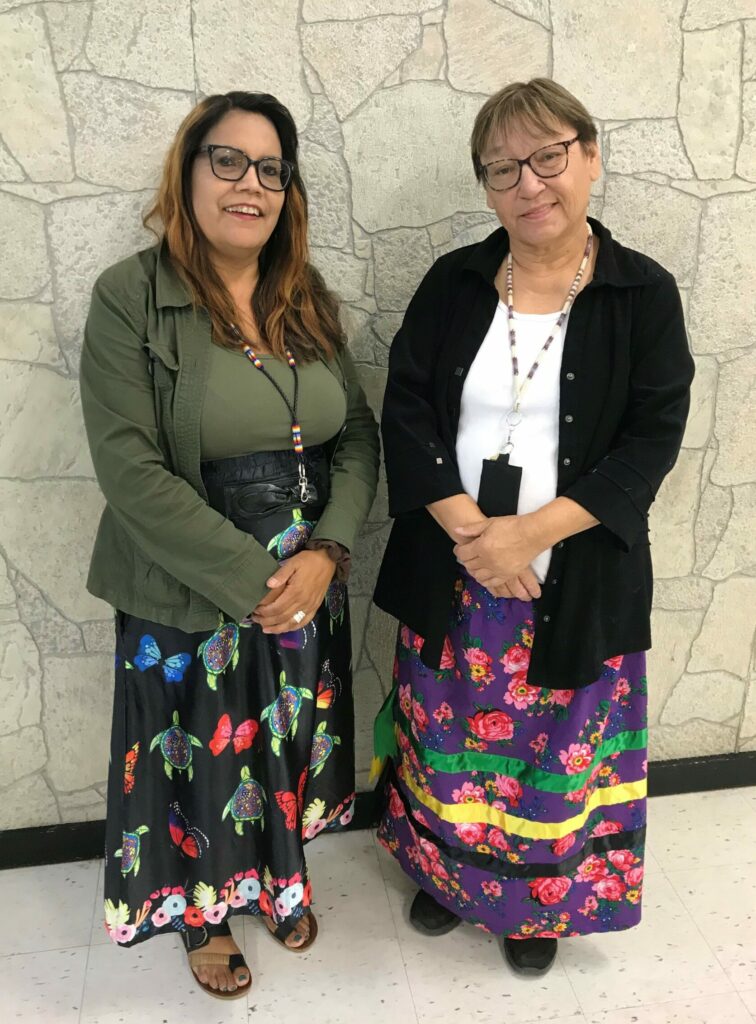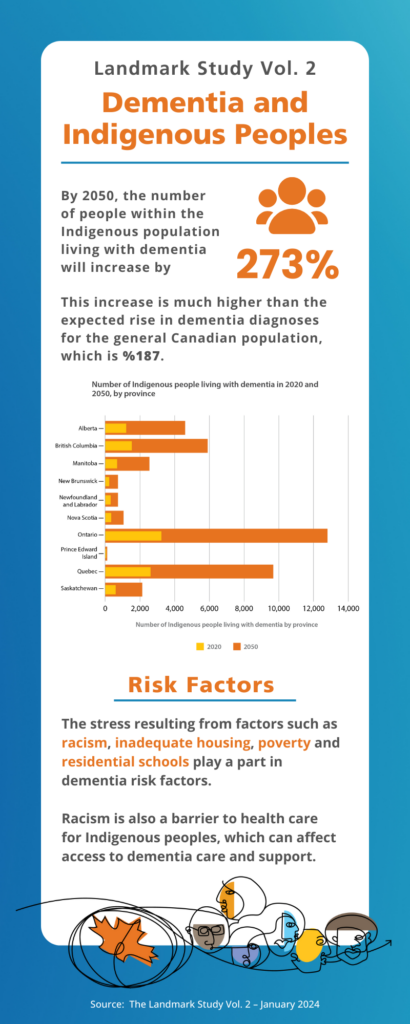The Impact of Dementia in Peguis First Nation

Sherry Asham, Community Health Representative at Peguis Health Centre, says her community has a great need for more dementia awareness and information.
“I find there’s more and more people getting dementia, mostly older folks but some younger people are getting it too,” says Sherry. “We need more awareness to help our community understand what’s happening and get a diagnosis sooner.”
Receiving an early dementia diagnosis can help individuals and families get access to support and resources that much sooner. It can also allow someone living with dementia to be more involved in decision-making around their care.
Sherry also says more dementia awareness and information could help people care for their family members at home and in the community for as long as possible.
“Home care is available in Peguis, but this resource is limited. This makes it tough for caregivers – caring for someone with dementia can be overwhelming and stressful without the right support,” Sherry explains. “The personal care home in Peguis usually fills up quickly, which causes some people living with dementia to leave the community if they need long-term care.”
Each September, the Alzheimer Society of Manitoba visits Peguis to give an awareness presentation and workshop on dementia for community members and local healthcare staff. Sherry says workshops like these, especially with access to attend through Zoom, are a huge help.
“There’s more access to support in Winnipeg than on the reserve,” Sherry says. “Having the Alzheimer Society come to Peguis for presentations is great, everyone wants to attend. The ability to get support through Zoom, like the Society’s education workshops, is another helpful resource for family members affected by dementia.”
Sherry says there are some differences in the way Peguis community members can receive dementia care in their community, in comparison to accessing care through Manitoba’s health care systems. For example, they might use traditional Indigenous medicines in their practice.
“I sometimes send people to our community Knowledge Keeper if they want to use traditional medicine for dementia care. Not too many people choose to use this method, but it’s always available for those who want to. Some people also use both our traditional medicine and Western care practices. It’s all about what works best for them.”

There is still little in the way of research that tells us just how much dementia impacts Indigenous communities. This is why it’s so important that we listen to the experiences of Indigenous peoples affected by dementia.
“Dementia is so diverse – understanding and recognizing how our values, traditions and culture can impact the dementia experience is crucial to being able to provide the best care and support,” says Nicole McDonald, Dementia-Friendly Communities Senior Manager at the Alzheimer Society of Manitoba.
If your community could benefit from dementia information, support or presentations, connect with Nicole at nmcdonald@alzheimer.mb.ca.